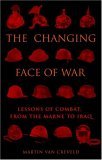I’m re-posting this here as I know the links may be of interest to certain parties.
An interesting confluence of information has crossed my computer screen in the last 24 hours.
Fabius Maximus was kind enough to send me a PDF, “Cognitive biases potentially affecting judgment of global risks” by Eliezer Yudkowsky, Singularity Institute for Artificial Intelligence. It’s a very interesting paper on analytical thinking – or is even though a number of the points made by Yudkowsky I have seen previously made elsewhere ( the blogosphere revels in hyperactive disconfirmation biases). Their central cognitive philosophy – “….the one whom you must watch above all is yourself”, is spot on.
Secondly, over at Kent’s Imperative, one of the Kentians, let’s call them “Most Formal Prose Kent” had a highly congruent post to the Yudkowsky paper, “The sins of analytic methodologists “:
“There is an increasingly common conceit that reliance on the analyst – subject to, cognitive bias, information overload, and human fallibility can be engineered out of the process of doing intelligence. Instead, certain methodologists would substitute organizational structures, workflow re-organization, and the introduction of supposedly superior quantitative metrics in order to create a new standard for “answers”. The underlying thrust of these efforts is to reform intelligence activities towards a more “repeatable” process, often described by industrial or scientific metaphors such “foundry” or “lab”. These typically originate from the engineering and technical intelligence disciplines, and are usually directed as criticism of typical all source efforts particularly those grounded in social science fields or qualitative methodology.
…The fundamental flaw in many of these methodologists’ efforts is that they are essentially reductionist attempts to force the difficult and oft-times messy art of intelligence entirely into the narrow box of its scientific side. While there is a place for scientific approaches, particularly in the grounding and validation of assessment, the inherently creative, non-linear, and even non-rational elements of the profession can never be completely discarded. Most recent intelligence failures have occurred, not due to a lack of precision in judgment, but from a lack of imagination in identifying, describing, and forecasting the uncertain dynamics and emerging complexities of fast-changing accounts.”
Sagely described.
Clear thinking is difficult. Few of us begin by adequately checking our premises or, sadly, our facts. Even in the domain of concrete and verifiable factual information, so much rides on our implicit opinion of what exactly, in terms of data points, constitutes a ” fact”, that we are usually off-base before we begin. Even if we are cognizant of these variables from the inception of forming a question, we might be horrified to discover, with some dogged investigation of the finer details, how fuzzy at the margins that even our peer-reviewed, “valid and reliable”, facts can be – much less the breezy assertions delivered by the MSM.
Then, more to the point of the KI post, there is the hasty selection of particular, reductionist analytical tools that a priori blind us to the nature of the emergent unknown that we are trying to understand. We become prisoners of our chosen perspective. One problem with human perception is that there is no guarantee, having recognized the existence of a novel dynamic phenomena, that our perception represents the most significant aspect of it. Much like conceptualizing an Elephant in motion from blind contact with its eyelashes. Or its feces.
Human nature is a perpetual rush to judgment. We must rise above that.
